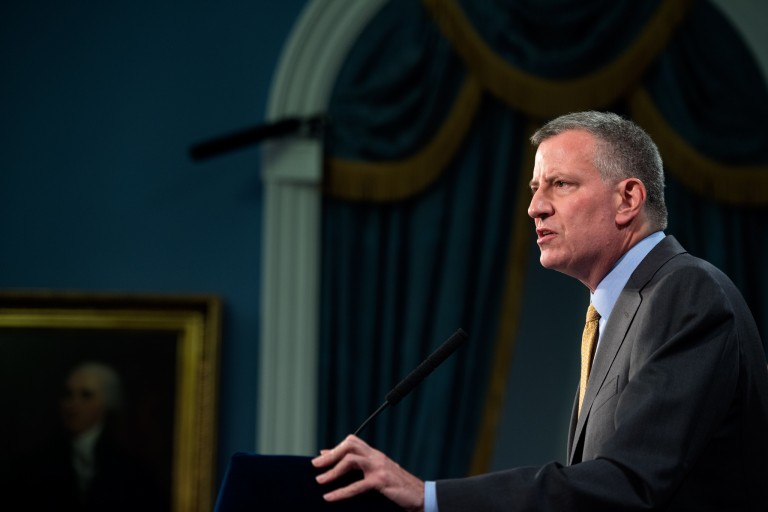Mayor Bill de Blasio last week released the city’s Fiscal Year 2016 November Financial Plan Update, which, according to hizzoner, continues to reflect core administration priorities while protecting the city’s long-term fiscal health.
City spending has largely remained flat since the FY2016 Budget was adopted in June. While the overall budget has increased from $78.5 billion to $79.9 billion, it is almost entirely the result of new federal grants for Superstorm Sandy recovery and resiliency, and homeland security, de Blasio noted.
Since the Adopted Budget this summer, independent rating agencies and monitors have “continued to affirm the city’s prudent budgeting,” according to the administration. Last Thursday, the NYC Municipal Water Finance Authority was upgraded to Aa1 from Aa2 by Moody’s Investors Service, citing strong management, de Blasio said.
“The November Financial Plan reinforces the strong budgetary foundation this administration has prioritized,” de Blasio added. “We continue to be realistic about the risks ahead, with targeted investments and strengthened reserves to protect taxpayers, and programs that will lift up families across the five boroughs.”
However, there are potential risks ahead, the mayor cautioned, including the likelihood of another economic downturn. The current U.S. expansion has already reached 77 months, exceeding the average 58-month length of post-war expansions.
The updated FY2016 budget reflects $183 million in agency expense changes, including funding for previously announced administration initiatives, such as the expansion of composting, as detailed in OneNYC; truck guards for city vehicles, to protect pedestrians, cyclists, and motorcyclists and further the Vision Zero plan; personnel and technology for the Office of Special Enforcement; and the Young Men’s Initiative’s Male Teacher Recruitment Initiative.
Other significant Expense Budget changes: $88 million in additional funding for the Department of Homeless Services to work to “aggressively address” the uptick in homelessness throughout the city. And $24 million in additional funding for the Department of Correction, which de Blasio has said will cover the implementation of the 14-point plan to address violence on Rikers Island; as well as personnel services, and a case-management system.
The November Financial Plan Update also reflects approximately $304 million more in tax and miscellaneous revenue for FY2016 than the Adopted Budget. Yet given the potential risks ahead and the possibility of an economic downturn, de Blasio has indicated that the city will continue to “budget cautiously.”
In the meantime, the administration has boosted these reserves: the General Reserve was increased to $1 billion a year, which will provide the city with protection in the event of a downturn; the Retiree Health Benefit Trust Fund has been increased to $3.3 billion; and the first-ever Capital Stabilization Reserve set aside $500 million to protect the city’s ability to invest in infrastructure and other capital needs, allow the city to retire debt in a potential downturn, and pay for research to make capital projects more cost efficient.
Out-year gaps remain well below historical averages, de Blasio noted.
Additionally, as part of this November Financial Plan Update, the administration announced that it has prepaid $135 million in FY2017 expenses.
By Forum Staff

